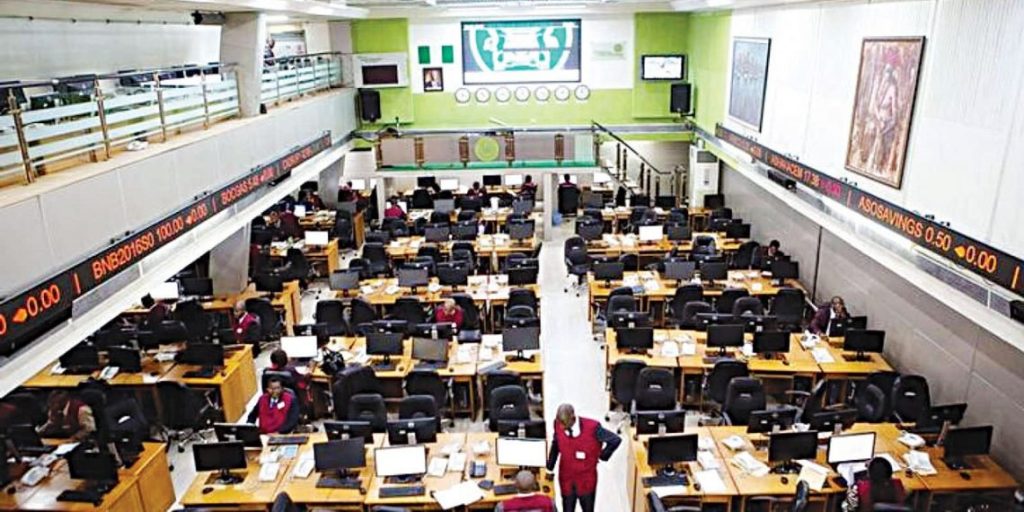According to the Nigerian Upstream Regulatory Commission (NUPRC), aggregate crude oil production (including condensates bucked three consecutive months of decline, increasing by 8.2% m/m to 1.23mb/d in September (August: 1.14mb/d).

The increase was primarily driven by the Forcados (83.59kb/d vs August: 4.48kb/d) oil terminal as Shell Petroleum Development Company Limited (SPDC) resumed crude oil export at the terminal on 20 October after about three months of shutdown for essential repairs. Bonny (+772.0% m/m), Brass (+98.0% m/m) and Escravos (+26.5% m/m) terminals also supported the higher crude oil production in the review period. However, the crude oil production remains significantly below the country’s OPEC+ quota (1.83mb/d), reflecting lingering challenges.
Economy watchers expect the Forcados terminal to continue to support oil production volume in the short term, as it is expected to remain below the pre-COVID production high (c. 2.10mb/d) over the medium term.
Accordingly, oil GDP could remain a drag on overall GDP growth. In addition, despite the rally in crude oil prices, we expect the government’s oil revenue performance to remain underwhelming over the short term.
Equities
Meanwhile, activities at the domestic bourse took a negative turn last week as the loss recorded on the second trading day (-1.8%) proved sufficient in wiping off the cumulative 1.2% gain as of Friday.

The All-Share Index declined by 0.7% to 43,968.75 points, driven by sell-offs in GUINNESS (-10.0%), FLOURMILL (-9.9%), NB (-6.3%), MTNN (-2.0%) and DANGCEM (-0.8%).
Consequently, the MTD and YTD returns printed +0.3% and +2.9%, respectively. Likewise, activity levels were weaker than the prior week, as trading volume and value declined by 21.9% w/w and 24.5% w/w, respectively.

Elsewhere, the performances across sectors were broadly negative, as all our coverage indices – the Insurance (-2.2%), Consumer Goods (-1.9%), Oil and Gas (-0.7%), and Industrial Goods (-0.3%) — save for the Banking (+0.2%) index, printed losses.
Financial experts at Cordros Capital say the bearish sentiments are likely to remain predominant this week in the absence of any positive triggers to turn the tide for Nigerian equities. They say investors should take position only in fundamentally sound stocks as the weak macro environment remains a significant headwind for corporate earnings.

Global Markets
Meanwhile, positive sentiments dominated the global equities market as appetite for risk assets strengthened following a slower-than-projected US inflation data which bolstered hopes of less aggressive interest rate hikes from the Federal Reserve.
Accordingly, US (DJIA: +4.0% and S&P 500: +4.9%) stocks rallied as signs of cooling inflation fueled interest in tech stocks. In the same vein, European equities (STOXX Europe: +4.1% and FTSE 100: +0.8%) were on track to close higher, supported by positive sentiments in US and China amid recession fears following weak UK GDP data.
Similarly, Asian markets (Nikkei 225: +3.9%; and SSE: +0.5%) posted gains, taking a cue from the Wall Street rally and a boost from Beijing’s zero-Covid policy easing signals. Elsewhere, the Emerging (MSCI EM: +0.5%) market was buoyed by the gains in China (+0.5%), while the Frontier (MSCI FM: -0.6%) market declined following bearish sentiments in the Vietnamese (-4.3%) market.
United States
United States’ consumer prices have eased for the fourth consecutive month near four-decade highs as energy costs maintain its downward trend.
According to the Bureau of Labor Statistics (BLS), the US headline inflation settled at 7.7% y/y in October (September: 8.2% y/y) – its lowest print in ten months. As earlier stated, the moderation was primarily driven by the slowdown in energy prices (17.6% y/y vs September: 19.8% y/y), coupled with decreases in food costs (10.9% y/y vs September: 11.2% y/y) and prices of used cars and trucks (2.0% y/y vs September: 7.2% y/y).
On a month-on-month basis, consumer prices increased by 0.4% (September: +0.4% m/m). Although we expect that prices will moderate further in the near term, given the ease in energy prices and some improvement in supply chain bottlenecks, a low unemployment rate poses an upside risk in the form of higher wage growth, keeping broad inflationary pressures intact.
According to the Office for National Statistics (ONS), the UK’s real GDP contracted by 0.2% q/q in Q3-22 (Q2-22: +0.2% q/q), as higher consumer prices and increased interest rates dampened household spending and business investment. Analysing the breakdown provided, we highlight that private consumption (-0.5% q/q vs Q2-22: +0.2% q/q) and business investments (-0.5% q/q vs Q2-22: +3.7% q/q) declined while general government expenditure grew by 1.3% q/q (Q2-22: -1.5% q/q). Notably, we highlight that the UK is the only G7 country yet to fully recover from the COVID-19 slump.
On a year-on-year basis, the economy grew slower by 2.4% (Q2-22: +4.4% y/y). Experts at Cordros say the economic growth is expected to remain pressured in the short-to-medium term, given the troika effects of (1) tight monetary conditions, (2) a fall in real household incomes, and (3) supply constraints exacerbated by the Russia-Ukraine conflict. Accordingly, the economy is on course for its fastest return to recession since the mid-1970s; the BOE highlighted that the economy could shrink in five of the six quarters until the end of 2023. C















